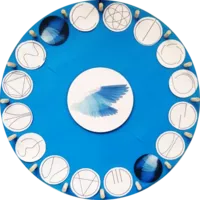uniSPEAK
Students' Personality & Ensuring Across-faculty Knowledge transfer
Project
Our former way of life was, to a large extent, founded on scientific discoveries and advancements from the not-so-distant past. In this scenario, our society was fittingly labeled as "scientific," where knowledge was highly regarded. "Knowledge," in all its dimensions, was more than just an accumulation of facts. It also included expertise in scientific methodologies and experiential insights. Above all, knowledge wasn't a static concept but a dynamic entity prone to evolution. Elaborating on this dynamic nature of knowledge, its creation was perceived as a stream flowing through various institutions—from innovative theoreticians, through foundational experimental research, and on to its application, instruction, dissemination, and the transference from one generation to the next. With this perspective, the idea of "knowledge transfer" revealed vast, ever-growing territories of opportunities and challenges ripe for exploration and action. While this dynamic was historically consistent, recent times saw a surge in scientific publications and patents—a trend reminiscent of a production line, which might have been seen as beneficial or not. Regardless, this trend led to a rapid increase in the creation of "knowledge." Beyond these reflections, we were fascinated by the foundational mechanisms of transferring knowledge. Even though it was a crucial component for ongoing and sustainable scientific and technological advancements globally, it was varied and challenging to encapsulate. A multitude of stakeholders, encompassing societal, scientific, industrial, political, and educational arenas, had to be considered, even when only examining the interconnected developed countries. Incorporating developing nations into this equation made the process exponentially more complex. Due to its intricate nature, knowledge transfer inevitably faced numerous hurdles and sometimes stumbled, not without repercussions. It's worth noting that these diverse views on knowledge transfer often overlooked the consolidation of invaluable personal experiences and "wisdom" in addressing scientific challenges, a challenging yet essential objective for education. Hence, we aimed to gain deeper insights into the overarching process and selectively study the progression of methodological expertise within and among different scientific domains.
Team
Projektgruppe:
- Maria Baumgartner
- Martina Gschwendtner
- Johannes Herms
- Sebastian Kaltenbach
- Marvin Lechner
- Vivien Lechner
- Felix Schweighofer
- Justus Wolf
Tutor/innen:
- Matthias Lehner
- Kristina Schick
- Robin Weiss
Mentor/innen:
- Prof. Dr. Pascal Berberat (Medizin)
- Prof. Dr. Christina Raasch (WiWi)
- Prof. Dr. Klaus Mainzer (Edu)
